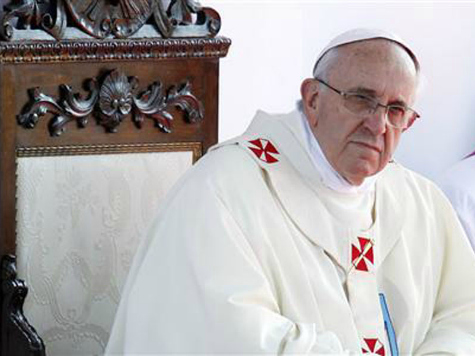Corruption is like “bad breath,” says Pope Francis, “it is hard for the one who has it to realize it; others realize it and have to tell him.”
In an address to a delegation of the International Association of Penal Law this morning, Francis commented on a variety of troubling international legal issues, including the widespread problem of corruption, which he called “a greater evil than sin.”
According to Francis, remorse is possible only when one is aware of evil, which is not the case with a corrupt person.
“The corrupt person does not perceive his corruption,” the Pope said. “For this reason, it is difficult for the corrupt person to get out of his state through remorse of conscience. More than forgiven, this evil must be cured,” he said.
“The scandalous concentration of global wealth,” said Francis, “is possible through the connivance of political authorities.”
“Few things are harder than opening a breach in a corrupt heart,” Francis continued. “When the personal situation of the corrupt becomes complicated, he knows all the loopholes to escape as did the dishonest steward of the Gospel.”
“The corrupt person goes through life taking the shortcuts of opportunism,” said the Pope, “with an air of innocence, wearing the mask of an honest person, which he begins to believe.” The corrupt person “cannot accept criticism, discredits anyone who criticizes him, tries to belittle any moral authority who would question him, does not value others and insults anyone who thinks differently. If the balance of power permits, he persecutes anyone who contradicts him.”
Unfortunately, according to Francis, the problem is widespread.
“Corruption has become natural, a personal and social custom, a common practice in commercial and financial transactions, in public procurement, in any negotiation involving State agents,” he said.
The panorama is not pretty, and there are no quick fixes.
“What can criminal law do against corruption?” the Pope asked.
“Penalties are selective,” the Pope said. “They are like a net that captures only the small fish, while leaving the big ones free in the sea,” Francis added.
“Still,” says Francis, “the Lord never tires of knocking on the doors of the corrupt. Corruption is powerless against hope.”

COMMENTS
Please let us know if you're having issues with commenting.